What comes to mind when you hear Cinderella?
How about Beauty and the Beast?
Snow White?
I bet each of those titles conjures up a particular vision related to a well-known cartoon mouse. Don’t feel bad if that’s the case; it is for me as well. Let’s take a look at why that is, for many of us.
Fairy tales are unique creatures in the literary world, thanks to this idea of the classics as told by the Brothers Grimm then later adapted by Disney. For instance, when someone mentions Cinderella, the first thought that pops into mind—at least for me—is Disney’s version. That’s the one I grew up with, my sisters and I wore that VHS (Google it) out. Then I think about the version from the Grimm stories where the stepsisters disfigure their feet to fit into the glass slipper. But what about the iterations that inspired those tales? What about the ninth-century Chinese story of Ye Xian, who uses a wish from magic bones to create a beautiful gown to go after her beloved? I love fairy tales, but the idea they have to follow these “rules” set down by the unoriginal European versions has always bothered me.
When I started writing A Blade So Black there was a part of me that recognized this as an opportunity to push back against the conceptual rules surrounding “classic” fairy tales. After all, I had grown up listening to and watching these stories about princesses going on adventures, falling in love, having their lives turned upside down then made all the better by magic, and not once did I think that could be me. Sure, I loved the stories and watched the films repeatedly, but I never wanted to be Belle or Ariel for Halloween. I never wanted an Aurora or Snow White costume. Neither did any of my sisters. We were young but we understood the rules, even though no one stated them explicitly: this is not for you, Black Girl. You have no place here, Black Girl. You are to observe but not participate, Black Girl.
Now that I think about it, none of my cousins or the Black kids at school dressed in these costumes either. What we wore was always connected to the tales by proxy, maybe a generic princess or a sparkling fairy. That was close enough to count, right? Then Princess Jasmine came along, and we finally had a brown princess we could be more connected to. Then the comments started about how we didn’t match her either, or any of the other non-white princesses. We weren’t allowed to be part of the princess craze that hit during the ’90s. We had to watch from the sidelines or risk ridicule. It was hurtful to be shut out of the stories that were essentially shoved down our throats our whole lives. Then came Tiana.
Tiana was announced, and every Black woman and girl I know lost our collective ish. Finally, we thought as we celebrated, finally we have a princesses. We can be part of this. We won’t be cast aside anymore. That joy was short-lived. Yes, we finally had a Black princess, but then you watch the movie and she spends over 80% of it as a fricken frog. It was bittersweet, heavy on the bitter, and I’m still salty about it to this day. It’s a special sort of cruelty to make something the central focus of a generation of media, to essentially bludgeon the world with it, but to only allow a fraction of the populace to take part. Then, when you allow someone else in, they don’t even get to see themselves but instead this animal in their place. That’s kinda how publishing does stories in general, animals have more rep than non-white readers, but that’s a conversation for another time.
Then the retellings-and-reimaginings trend started to kick in, first on the page, then on screen. Ninety-nine percent of those new iterations reimagined many elements of the stories but always overlooked one in particular: the characters’ race. The narrative remained centered around whiteness and white characters. There was one exception that I can remember and that’s the Cinderella movie staring Brandy and Whitney Houston. It’s the main Cinderella movie we watch in my family, and we’re very happy to have it, but it’s one film out of dozens. Possibly hundreds. And now, for the first time in over 20 years, there’s mere talk of a Black actress playing one of these princesses (Zendaya as Ariel) and people are against it. They say things like, “Dark skin wouldn’t naturally occur under water, away from sunlight,” or, “This is a European tale, tell your own,” which is honestly racist and anti-black as all hell. There’s no reason this one version of Ariel can’t be Black. It won’t erase the tens of others out there. Still, people are pushing back against it, and the “tell your own” thing really chaps my ass. Here’s why.
Buy the Book
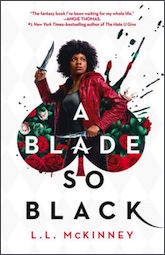

A Blade So Black
Many members of the diaspora—I’m speaking to my experience of being Black American—who live in the US don’t know “our own” stories, so we can’t tell them. Thanks, slavery. We’re searching for them, digging up the past and the truths therein, but that doesn’t change the fact that we were given these Disneyfied versions of fairy tales as well. We were in the theaters, our parents purchased the toys, we collected the movies for home viewing. Our families’ money spent just as well, even though we were aware of the unspoken rule that it wasn’t for us. Black kids grew up on these stories just like white kids, so why can’t these fairy tales be shifted to reflect us as well? I’ll give you a hint; it starts with R and ends with acism.
After being denied space to enjoy fairy tales for so long, then having the rug pulled from under me with what amounts to a mean joke—I love my Tiana for what she’s supposed to be, don’t go thinking I’m throwing shade at her, I’ll fight someone over my princess—I wasn’t having it anymore. So I wrote my Alice, and when she was announced to the world, I received some hate. I was accused of “blackwashing,” which isn’t a real thing, and was told I should “tell my own” stories instead of taking them from … I don’t rightly know. The haters weren’t clear on that one.
I’ve said this before, but it bears repeating: These are my stories. Alice in Wonderland belongs to me to reimagine as much as it belongs to any of the white authors who’ve told the story in their own way without being harassed. I’m telling it my way, with a Black Alice. That changes the story fundamentally. Some of the recognizable elements from the original will be altered or missing. This will bother some people, and that’s all right. That being said, I’m not taking anything from anyone. For one thing, I can’t take what’s already mine, and fairy tales and classic children’s stories have belonged to non-white readers from the beginning. That’s the truth of it—a truth the world is going to have to accept. I know this pisses people off, and I’m here to bask in all the angry tears. I bottle and bathe in them. Keeps my skin moisturized. Plus I need to stay hydrated while I write the second book.
Black Alice is here to stay, y’all, and I can’t wait to see who’s next.
L.L. McKinney is a writer, a poet, and an active member of the kidlit community. She’s an advocate for equality and inclusion in publishing, and the creator of the hashtag #WhatWoCWritersHear. She’s spent time in the slush by serving as a reader for agents and participating as a judge in various online writing contests. She’s also a gamer girl and an adamant Hei Hei stan. A Blade So Black is her debut novel.










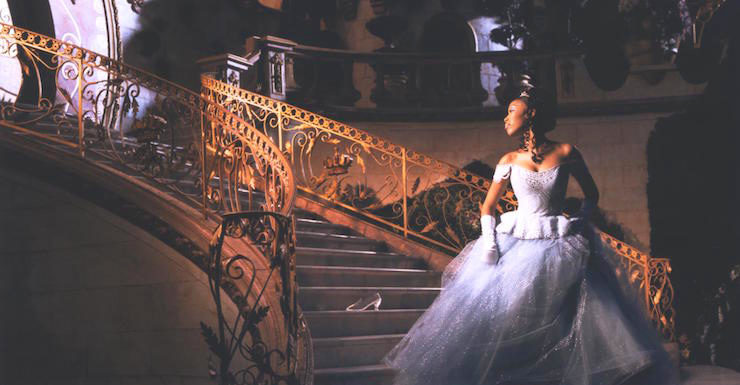
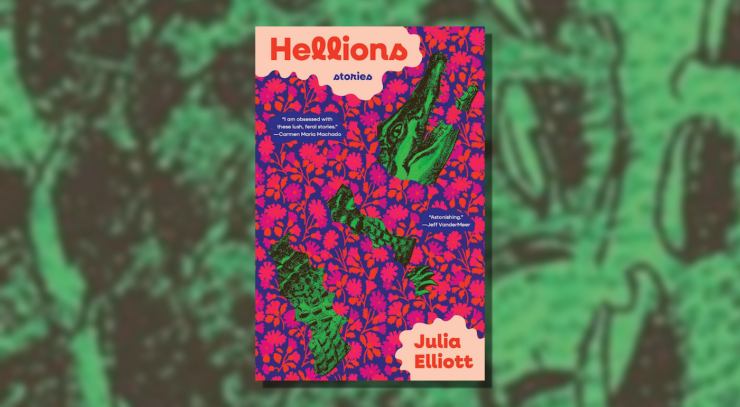
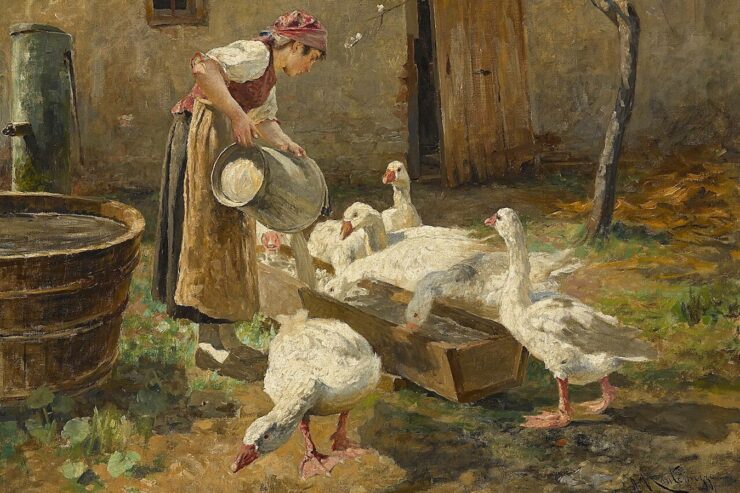
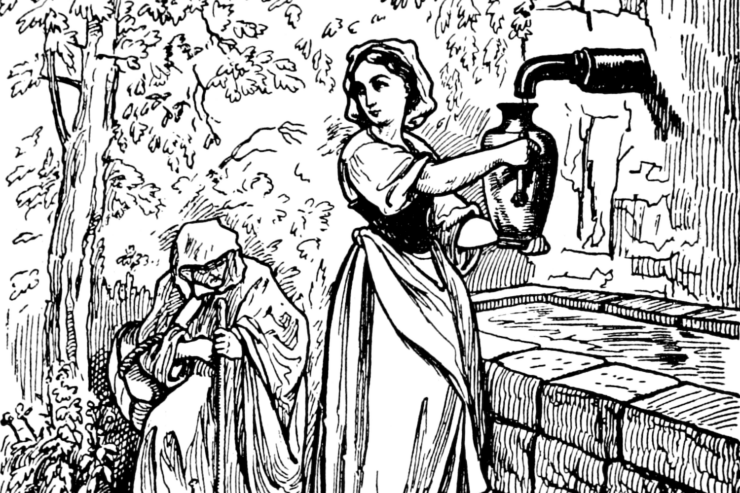
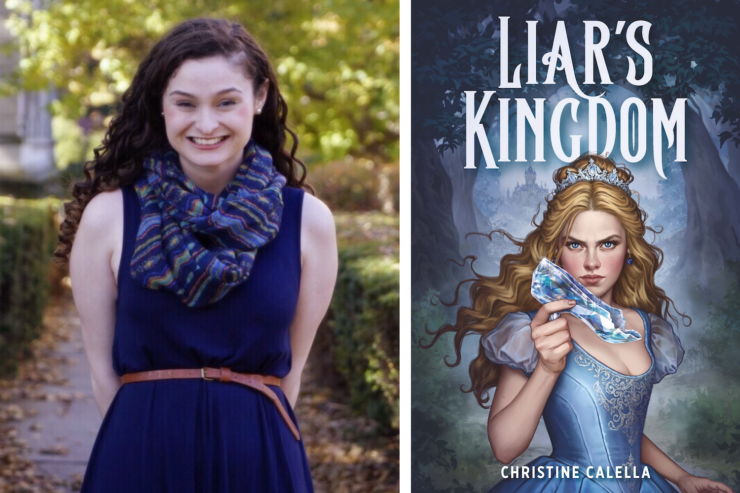
It really surprises me when I read stories of children not dressing up if they don’t look like the character or that adults told them or implicitly that they can’t do it.
I live in South America and we don’t look like most Disney princesses or Marvel’s superheroes, but that isn’t an obstacle for children. They decorate their parties and put on costume. I’ve never seen or met someone who believes they can’t do it because they don’t match the phenotype. It’s just dressing up and they are playing.
Agree with the love for the Brandy/Houston Cinderella. Tight, well-acted retelling that seamlessly integrates race-blind casting into the fairy tale world (the Prince is also diverse). And some nice alterations to the book/score pulling from the Rogers catalog to provide more depth to the Prince (“The Sweetest Sounds”) and the Stepmother (stealing “Falling In Love With Love” from The Boys from Syracuse).
Just ordered your book
Great article! I took a mythology course in college and one of the first things the professor told us was that every culture in history has had as part of their mythology or tradition a Cinderella story, a Jack and the Beanstalk story and a flood story. Whether this is 100% true or not I don’t know, but many of these pre-date the European stories and were probably part of their original basis. The European stories didn’t originate in a vacuum.
Personally, I would love to see Zendaya as Ariel and I can’t wait to read A Blade So Black!
Might there not be a female Anansi?
Well, I couldn’t find a black Cinderella in recordings of the two best known opera versions, that of Rossini (Cenerentola) and that of Massenet (Cendrillon), but I did find a black Prince Ramiro, bel canto virtuoso tenor Lawrence Brownlee, in a recent recording of Rossini’s version.
I really don’t understand people’s constant insistence on their racism. When a perfectly talented actor/actress is turned down for a role, or complained about in a role, because of their skin color, it just makes me feel like people complain too much.
The Last Airbender had appropriate actors lined up, but the studio forced white actors into the roles. Why? Because they’re stupid and relying on forty-year-old demographic information that was wrong then too? (John Wayne as Genghis Khan, because they needed a white actor. Right.) Scarlett Johannson was all right in Ghost in the Shell — could they have picked a different actress? Would it have been better simply by changing the style a little? Who can say? But Hollywood keeps trying to make movies for the anime crowd, and the crowd keeps boycotting movies before they even come out. Heaven forbid they get any of their money back to make another movie.
The studios are averse to taking risks. The more people shout, the more they organize boycotts, the riskier movies feel and the less interest Big Hollywood has in trying something different. I heard something to the effect that Shyamalan torpedoed Airbender as a giant finger to Nickelodean. Is it true? Evidence certainly points to maybe — there are a few brilliant scenes late in the movie, but they’re buried by stupidities like Earth Benders being kept in a dirt pit, unable to muster the intelligence to escape. (I always thought Kiyoshi Island would have been perfect for that scene instead, helping the Warriors free the villagers.)
I applaud taking the chances to introduce someone other than mediocre white actresses into roles. But at the same time, let’s not make them mediocre other actresses. I haven’t followed Zendaya’s career (not my demographic) but her performance in Spidey: HC was a bit dull to me. She was written as the polar opposite of the actual Mary Jane, a boot-wearing sassy girl who liked the wild edge of fun. Instead, Zendaya was supposed to be a social-justice warrior who made historically inaccurate statements that play politically correct today. She was weird, moody and boring — and that was the performance to convince me she’d make a good overdramatic teenage girl with delusions of escaping her world for another? Why not Quvenzhane Wallis from Annie 2014? We know she can sing, we know she can be amazed at a bigger world, and they can make big-hair-under-the-sea jokes. And she desperately needs a push back into the light, whereas Zendaya already has a Disney show and a recurring Marvel role.
[EDITED TO ADD] Apparently Wallis can’t do it because she’s starring in the title role of Naya: Legend of the Golden Dolphin Princess. Typcasting’s a pain, ain’t it ;-)
Zendaya does not have a Disney show anymore. KC Undercover ended in February of 2018.
The idea that a particular media (and the characters therein) isn’t ‘yours’ is super weird to me — especially when it comes to Disney, or fairy tales in general. These stories weren’t written, published, read, portrayed, or animated to sit isolated within a particular ethnic bubble; they were created to communicate a message to people, and typically in a way that brings everyone who experiences and finds meaning in that message together. If you’re a person who finds meaning in the story, its yours and part of your culture, regardless of who you are.
Hell, that’s what culture is — ideas and meanings shared over a population.
I honestly couldn’t make it past the opening. I mean it’s one thing for her to start poor and end up rich but she started off poor and marginalized.. in a FAIRY TALE. I don’t know if I’ll ever get to finish Princess and the Frog.
The issue I see when changing white characters to black is that the same people would call you racist for changing a black character to white.
Change what you want but don’t complain when others change things too.
So I was already a fan, and then this:
As a man of many colors myself, I love this. Your book was already on my TBR stack (pre-ordered based on your September 12 tweets). It’s now next on my reading agenda.
Agree 100%. And they couldn’t bring themselves to find a Black Prince to put her with, but someone of indeterminate race and accent. She was not only marginalized, but neutralized too. Unfortunately, the actress who voiced her went along with the ‘love is blind’ school of thought. But Jasmine and Mulan wound up with one of their own. Even Nala wound up with her own species. Disney had a chance to make a it right, but chose to do the minimum.
Putting your book on my list! Your essay reminded me of this interview with Kerry Washington when she was doing press for Django Unchained that’s stuck with me since:
[I]t was such a rare opportunity to be the princess and be rescued. Black women in America have not been able to afford the fantasy of being rescued by our husbands in a tower, because we come out of this legacy as women not able to even really have husbands. Most female slaves in America didn’t have husbands, they couldn’t, and if they did, their husbands and children could be shipped down the river at any moment…so the idea that this love between these two people which isn’t even really legally sanctioned, that they would fight so deeply for their marriage. It’s just such a revolutionary idea…
And screw the haters. If our culture’s quintessential version of Sleeping Beauty comes from the studio of an Irish-American who adapted a story by a couple of Germans, who adapted it from a Frenchman, who adapted it from an Italian, who adapted it from folk tales from god-knows-where–it’s a few centuries too late for anyone to claim ownership of her. Even a latter-day entry like Alice in Wonderland, where we can pin down her origins and real-life inspiration pretty accurately–for the better part of a century she’s been homaged, adapted, pastiched, referenced, alluded to, mixed, remixed, rearranged–Who cares about fidelity to the “authentic” Alice at this point?
elder60 writes of Tiana: “And they couldn’t bring themselves to find a Black Prince to put her with, but someone of indeterminate race and accent.”
That choice (of a brownish prince evidently from the Indian subcontinent) wasn’t anti-Black, but necessary given the plotline in which Tiana essentially competes with a well-to-do white friend for the prince’s affections. Disney didn’t want to fully show how racist the West was at that time – not fairytale, a downer, provokes conservative rage, etc. – but no adult viewer would have considered both possible marriages plausible had the prince been either black or white. In real life, the wealthy white girl wouldn’t have considered marrying an African no matter how rich and handsome he was, while it wouldn’t have been acceptable for a European prince to marry a dark-skinned African-American no matter how talented and beautiful. The only possible choice was to make him “intermediate” so that all three participants and their families could perceive either pairing as acceptable.
“Dark skin wouldn’t naturally occur under water, away from sunlight.” Seriously?! They’re frickin’ mermaids! That’s like when Merlin aired on BBC and people objected to a black Guinevere because it wasn’t “historically accurate.” And I was like, I’m sorry, but anyone who’s watching this show for historical accuracy, I’ve got a few things to school you on…
Even worse, the reason these people considered it to be historically inaccurate is because, apparently, “there were no black people in Britain in those days.” Don’t even get me started on that one… *headdesk*